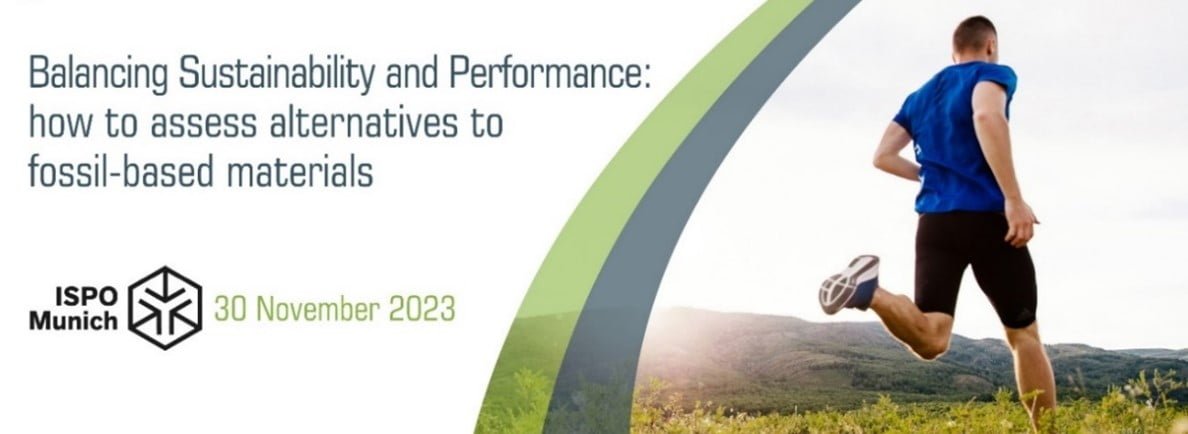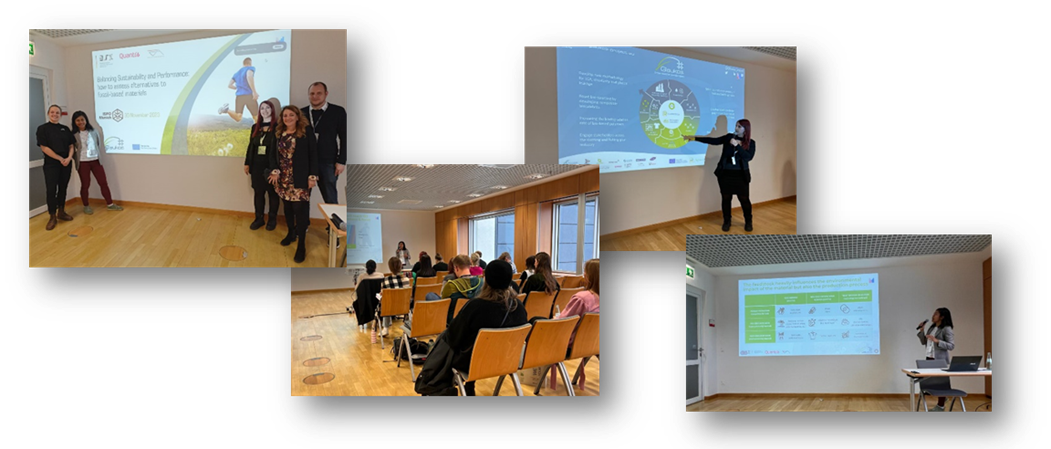The search for alternatives to fossil-based materials is more pressing than ever. But how do we assess new materials to ensure we are not confronted with harmful trade-offs? How can we include a holistic sustainability assessment to make informed decisions for the products of tomorrow?

Glaukos and BSI (the business association of German sporting goods manufacturers, wholesalers and importers) organised an interactive session on 30 November 2023, in the context of ISPO Munich, where speakers, together with participants, dived deeper into the Product Environmental Footprint (PEF) Methodology and how to go beyond traditional LCAs with microplastic leakage and circularity assessments.
The workshop involved around 20 BSI members of the Sustainability Working Group to discuss on how to include a holistic sustainability assessment to make informed decisions to drive sustainable transformation within the sporting goods industry (see Figure 23).
The event was structured with an opening presentation of Glaukos project, its main achievements and research outcomes, followed by an Inspire & Inform session (focused on the presentation of the Glaukos multidimensional model to map the challenges to be addressed; definition of Marine-friendly biopolymer; overview of the key barriers for the sustainable transition in the textile sector), the LCA Deep Dive (including challenges and opportunities of biopolymers; how to holistically evaluate the sustainability of biopolymers; synergies and trade-offs between performance metrics) and finally an interactive discussion with Mentimeter and live interventions to gather participant’s inputs.

Outcomes of the workshop and recommendations for Glaukos activities
From the general discussion with the audience, the following points emerged:
- Industries appreciated this type of focused and interactive discussion, in particular because it raises awareness and questions rather than providing top-down answers
- The awareness and interest towards Glaukos research changed significantly compared to the beginning of the project, but the workshop was useful to convince the most resistant participants
- Industries would like to commit to more sustainable solutions (especially circular solutions in EU, while in other Countries it was noted that bio-based solutions are more exploited, probably because of less strict legislations)
- There is a huge interest towards LCA, standardisation and legislations, new reliable materials and polymers, but biodegradation is still perceived as controversial and they are not very keen on exploring this solution.
- Marine-friendly biopolymer and the multidimensional model were highly appreciated as well as the possibility to be involved in this discussion
- Industries believe that they should take more responsibility (actually it is more on the consumers hands).
